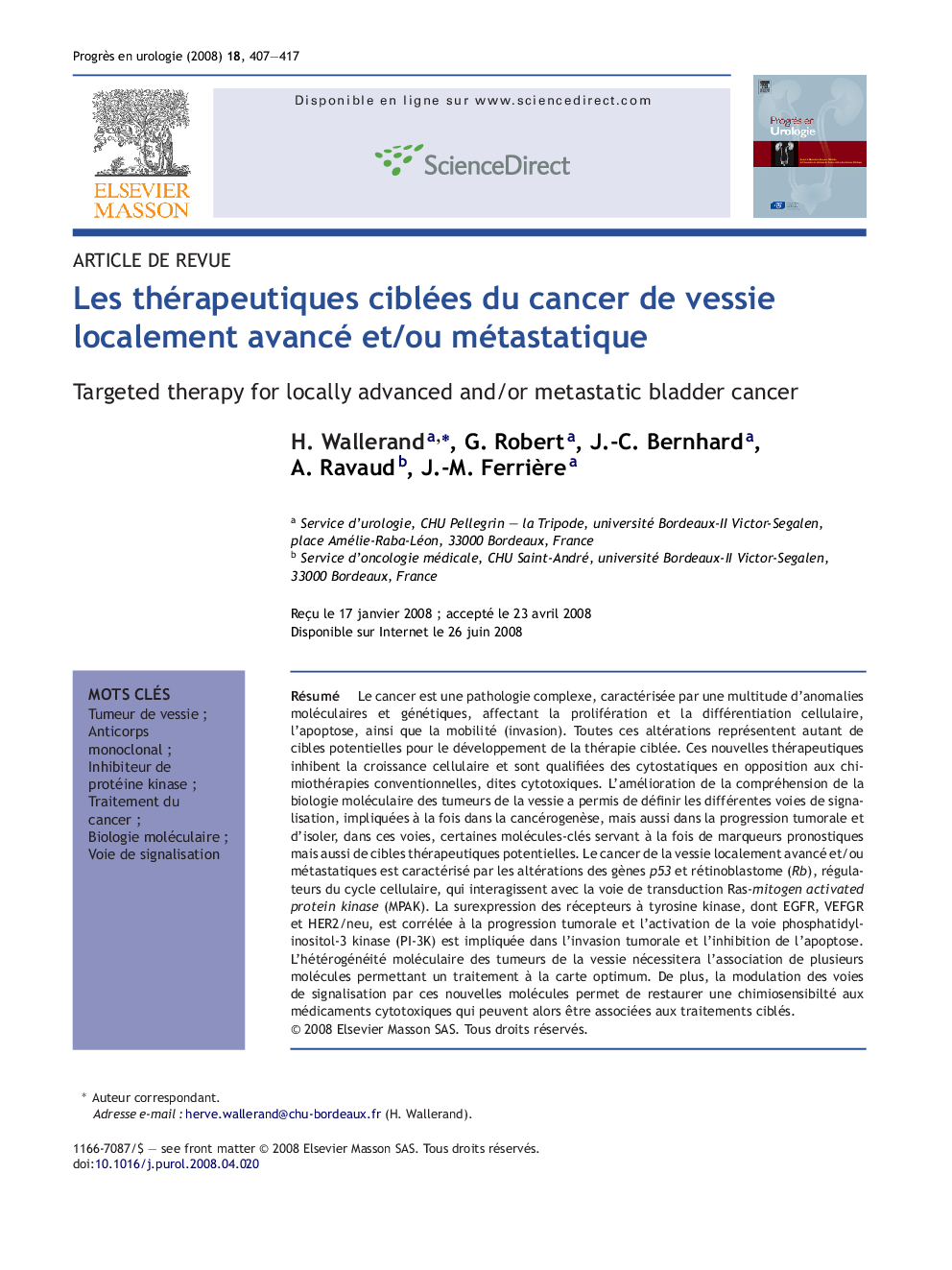| Article ID | Journal | Published Year | Pages | File Type |
|---|---|---|---|---|
| 3825929 | Progrès en Urologie | 2008 | 11 Pages |
Abstract
Cancer is a complex disease characterized by a multitude of molecular and genetic abnormalities affecting cell proliferation and differentiation, apoptosis, and mobility (invasion). Each of these alterations represents a potential target for the development of targeted therapy. These new therapies inhibit cell growth and are said to be “cytostatic” in contrast with conventional “cytotoxic” chemotherapy. As a result of a better understanding of the molecular biology of bladder cancers, various signalling pathways involved in both carcinogenesis and tumour progression have been defined, and some of the key molecules in these pathways have been isolated and can be used as prognostic markers and as potential therapeutic targets. Locally advanced, and/or metastatic bladder cancer, is characterized by mutations of the p53 and retinoblastoma (Rb) genes, regulators of the cell cycle, which interact with the Ras-mitogen activated protein kinase (MPAK) transduction pathway. Overexpression of tyrosine kinase receptors, including EGFR, VEFGR and HER2/neu, is correlated with tumour progression and activation of the phosphatidyl-inositol-3 kinase (PI-3K) pathway is involved in tumour invasion and inhibition of apoptosis. Due to their molecular heterogeneity, optimal targeted therapy of bladder cancers will require the combined use of several molecules. Modulation of signalling pathways by these new molecules can restore chemosensitivity to cytotoxic drugs, which can then be associated with targeted therapy.
Keywords
Related Topics
Health Sciences
Medicine and Dentistry
Medicine and Dentistry (General)
Authors
H. Wallerand, G. Robert, J.-C. Bernhard, A. Ravaud, J.-M. Ferrière,
